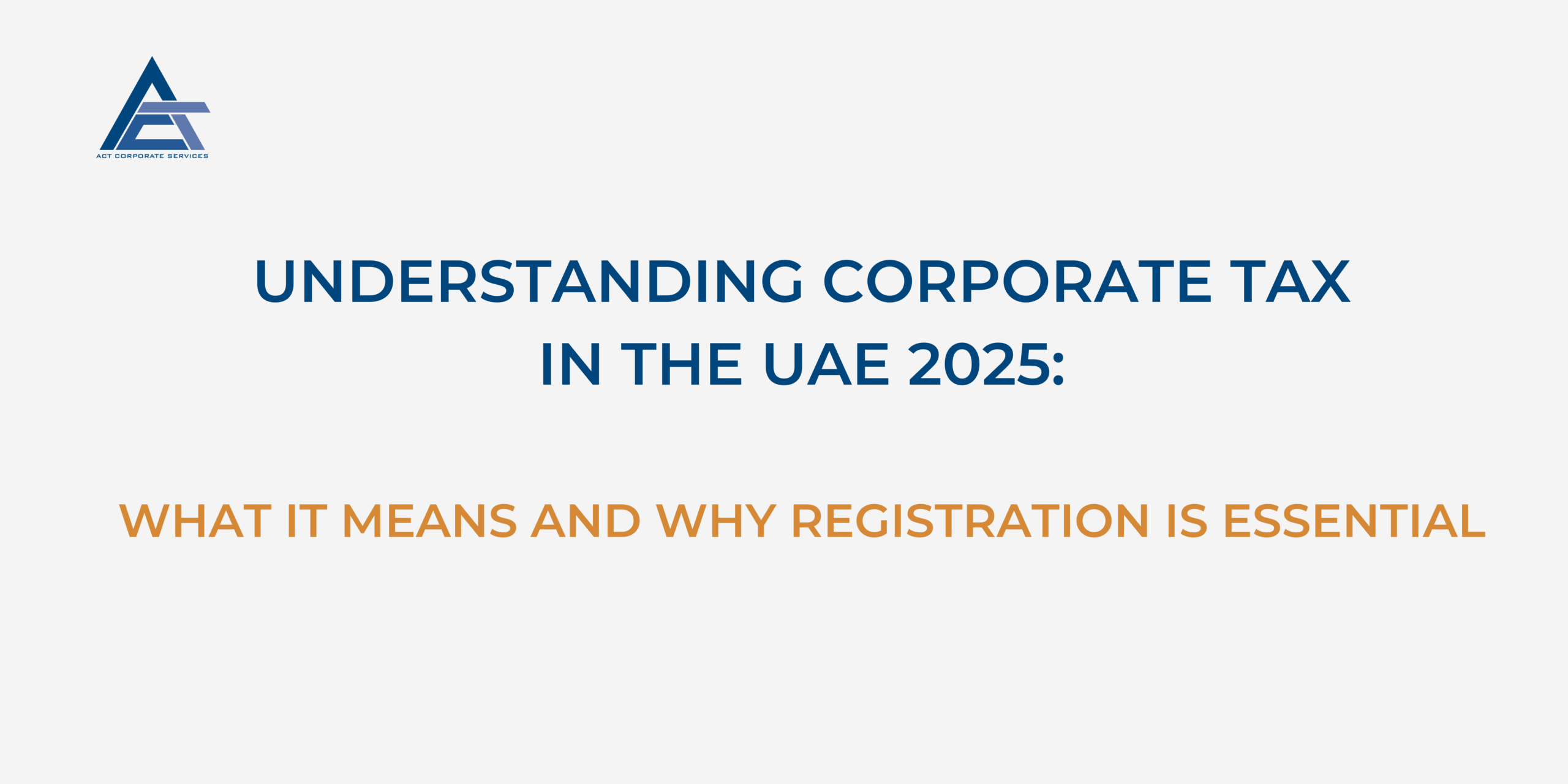The introduction of Corporate Tax (CT) in the United Arab Emirates marks a significant milestone in the country’s fiscal landscape. Effective from June 1, 2023, businesses across the UAE — including both mainland and free zone entities — are now required to register and comply with corporate tax regulations.
What Is Corporate Tax in the UAE?
Corporate Tax is a federal tax levied on the net profits of businesses operating within the UAE. It aims to support the country’s economic transformation while aligning with international tax standards.
Key features of the UAE Corporate Tax system:
- Standard rate: 9% on annual net profits exceeding AED 375,000
- 0% rate: On profits up to AED 375,000, to support small businesses and startups
- Free zone entities: Qualifying Free Zone Persons may still enjoy 0% tax on eligible income, but registration and annual filings are mandatory
Who Must Register for UAE Corporate Tax?
Registration is mandatory for almost all business entities operating in the UAE, including:
- Mainland companies
- Free zone companies (even those eligible for 0% tax)
- Branches of foreign companies
- General partnerships and other legal entities
- Sole establishments (subject to certain conditions)
- Non-resident entities with a permanent establishment in the UAE
Even entities that may be exempt from tax are required to register with the Federal Tax Authority (FTA).
Why Corporate Tax Registration in UAE Is Crucial
- Legal Obligation
Corporate Tax registration is a legal requirement under UAE federal tax law. Non-compliance can result in penalties and enforcement action by the authorities.
- Avoiding Penalties
Missing the corporate tax registration deadline can result in a fixed fine of AED 10,000 per entity. Further penalties may be imposed for non-filing, underreporting, or delayed payments.
- Access to Tax Benefits
Free zone companies and small businesses may qualify for favorable tax treatment. However, these benefits apply only to registered entities that meet specific criteria and submit the required returns.
- Banking and Compliance
Banks, auditors, and contractual partners increasingly require a valid Tax Registration Number (TRN). Businesses without a TRN may face difficulties in opening accounts, applying for loans, or entering into legal contracts.
- Filing Requirements
All registered entities must file annual corporate tax returns within 9 months after the end of their financial year. A valid TRN is necessary to submit these filings through the FTA portal.
What Happens If a Business Fails to Register?
Financial Penalties
A late registration penalty of AED 10,000 is automatically applied, with additional penalties for incorrect returns, failure to file, or tax underpayment.
Compliance Risks
Unregistered entities are at high risk of being flagged during audits. This can lead to retrospective assessments, legal action, and enforced collections.
Loss of Tax Incentives
Free zone companies that fail to register or meet qualifying conditions may lose their 0% tax benefit and be treated as regular taxable businesses.
Operational Roadblocks
Non-compliance can delay bank transactions, investment approvals, tender participation, and other key business functions. It may also signal risk to investors and regulators.
UAE Corporate Tax Registration Deadlines
The FTA has implemented staggered deadlines based on each business’s license issuance date. For example:
| License Issued | CT Registration Deadline |
|---|---|
| January–February (pre-2022) | May 2024 |
| March–April (pre-2022) | June 2024 |
| Later months | July–December 2024 (varies) |
It’s essential to verify the applicable deadline on the FTA portal or consult with a tax advisor to avoid penalties.
How Professional Guidance Can Help
Navigating tax registration and compliance can be complex, especially for small businesses and new startups. Partnering with a professional tax advisor can:
- Ensure correct entity classification
- Maximize available exemptions or reliefs
- Prevent missed deadlines and errors
- Assist in documentation, audits, and future reporting
Building a Compliant and Future-Ready Business
The UAE’s move toward corporate taxation reflects its commitment to a diversified, transparent, and globally integrated economy. While the system offers various benefits and low rates, compliance is non-negotiable. Timely registration protects businesses from financial penalties and positions them for long-term growth.
Need Support with Corporate Tax Registration in the UAE?
Experienced consultants can simplify the process — from registration and classification to filing and compliance. Get in touch with our experienced senior team for tailored assistance that ensures full alignment with UAE regulations.



